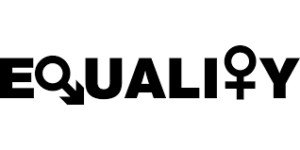It is common knowledge that women outnumber men in law school enrollment, but they aren’t sticking with the profession. While women are well represented at associate levels (approximately 46%), there is a sharp decline in the senior ranks. Only nineteen percent of equity partners are women. For every one hundred women promoted to partner, one hundred forty-one men are promoted, a twenty-nine percent difference. There is a lot of debate about why women leave and how to get them to stay in the profession.
We do not speak for all women, but both of us wanted to work for an innovative, values-aligned, mission driven firm where we would be treated as an equal. This is easier said than done! A 2017 McKinsey report found that law firms have many of the right policies and programs to improve and advance gender equity, but the commitments do not necessarily translate to successful implementation and measurable outcomes.

Our firm however not only talks the talk, but also walks the walk. With our firm as the example, we believe that the profession can improve gender equity by doing the following:
- Bake it in. Gender parity is more than just a policy; it is a choice and culture that is baked into the DNA of our majority-female mission-driven firm. And vital to our cultural success is strong leadership. Jason has been the undeniable champion of gender equity from the day that both of us met him. He leads by example and has created an environment where we can have open and honest conversations about gender bias. There is also no question about whether we can go to him when we feel gender bias is at play, indeed we have navigated some difficult situations as a team.
- Facing our implicit biases honestly. Even if we think we believe we support gender equity, many of us have an unconscious bias that may favor more traditional Western ideas of men building careers and women staying at home to build families. This bias is not limited to lawyers in the profession; clients have this bias as well. Acknowledging that we all have biases, we should take an active approach to counter this deficit.
- Providing strong female mentorship. To have a strong, experienced female role model in our firm (Linda Phillips) has been invaluable to us. Since we can see it, we believe we can be it too. Linda has faced many of the same hurdles that we have faced, successfully navigated them, and now knows how to handle them with grace and feminine power.
We feel lucky to be working with and for a firm that places such a high value on gender equity and we are both committed to pay it forward.
